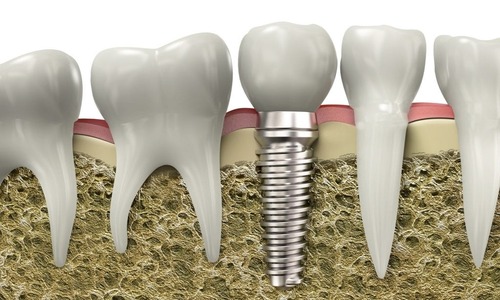How Long Do Dental Implants Last?
In the restorative dentistry field, the number one choice and a revolutionary, gold-standard solution on how long do Dental Implants last to replace the entire structure of a single missing/lost tooth or multiple teeth is a dental implant.
Tooth implants are the prosthetic tooth roots that support and preserve the natural jawbone in the sites of tooth loss. They serve as the strong foundation/anchor for the fake tooth’s visible portion which could be a dental crown, bridge, or denture.
Dental implants in Chicago are needed by someone who wears a complete denture, has missing failing or decayed teeth in one or both jaws, faces difficulty in chewing due to multiple lost teeth, or /and has periodontitis leading to gum recession, jawbone loss, or mobile teeth.
Getting dental implants is very advantageous. One of the major benefits of dental implants is their longevity. Teeth implants are the only long-lasting teeth replacement option for lost or missing teeth so a worthy one-time investment. But, how long do they last? If you have any such questions about dental implants, keep reading to learn more about dental implants from our dental implant specialist in Chicago at First Point Dental Clinic.
Components of a Dental Implant
Before diving straight into the focus question of this article “How long do dental implants last”, let’s first understand the whole dental implant structure.
A dental implant has three components:
- Implant- It is surgically installed in the jawbone of the missing tooth and acts as a fake root for the artificial tooth. It is usually made of titanium or sometimes zirconium.
- Abutment- It is a connector, a link between an implant and a dental crown. It is attached to the top of the implant and securely holds the crown in place.
- Dental crown- It is a tooth-colored fake tooth, usually made of ceramic. It is fastened to the abutment and gives the natural look and feel to the restored tooth.
How Long Do Dental Implants Last?
Dental implants for teeth can last for several years to come and even for the rest of the patient’s life, if they are properly maintained with adequate brushing and flossing, assuming that they are checked regularly by a dentist. The average lifespan of dental implants is anywhere from 10 to 30 years. Exactly how long dental implants can last is influenced by various factors including the age of the patient and when or what mouth location the patient gets an implant.
Tooth implants in Chicago are used to replace molar teeth receive more strain from chewing causing their failure or short lifespan more likely than dental implants used to replace front teeth.
Why do Dental Implants Last So Long?
Dental implants outlast other tooth replacement solutions mainly because of their design and the material used. The implants are made of biocompatible titanium that fuses to the jawbone and forms a stable, strong bond, lasting for the long term. Once osseointegration is over, the abutment and crown are placed over the implant root. The crown part of the implant is a durable natural visible portion of the tooth. It can last for around 10-15 years and then needs to be replaced because of wear and tear.
What Can I do to Make My Dental Implants Last Longer?
To make your dental implants last for several years, you just need to maintain your implants as you will do for natural teeth.
- Practice good dental hygiene. Daily brush teeth twice a day using proper technique and toothbrush/toothpaste. Although teeth implants are not susceptible to decay, it is important to preserve the health of natural teeth and even the health of gums that directly support the teeth and implants.
- Set a dental check-up appointment twice a year. Dental implants remain stable in place if the teeth and gums are kept clean and healthy. A dental hygienist can take care of this. Routine dental check-ups help identify potential issues that could jeopardize an implant, such as severe gum disease, and treat it early.
- Have a healthy lifestyle. Physical and oral health go hand in hand. If jawbones get weak due to gum problems or deficiency of calcium and potassium, the implant as well as other teeth would lose support and fall off. Therefore, taking a healthy diet is important for keeping implants healthy and stable.
- Avoid smoking. Smoking is very detrimental to implant health. It can restrict the blood flow in the blood vessels of the gums which can affect healing after implant placement as well as fusion of implant to jawbone. This means the implant would never integrate with the jawbone to serve as a strong and durable base for the crown.
What Factors Can Cause Dental Implants to Fail?
When properly cared for, tooth implants can last for several years and even a lifetime. However, there are cases where implants prematurely fail. That’s often when a patient having an implant is diabetic or suffers from a pre-existing medical condition such as cancer. Another possible cause of implant failure is severe gum disease resulting from poor oral hygiene.
Considering Getting Teeth Implants?
If you are thinking of getting dental implants instead of other alternatives, you need to search for the best possible implant specialist. Our implant specialist in Chicago utilizes modern techniques and technologies to accurately and carefully place toolh implants and ensure optimal surgery outcomes. They offer a variety of implants at affordable prices. You will be recommended for a particular type of implant based on your unique condition.
Interested in learning more about dental implants or looking forward to getting the surgery done, schedule an implant dentistry consultation today with our top-notch implant specialist at First Point Dental Clinic.
Also Read:

